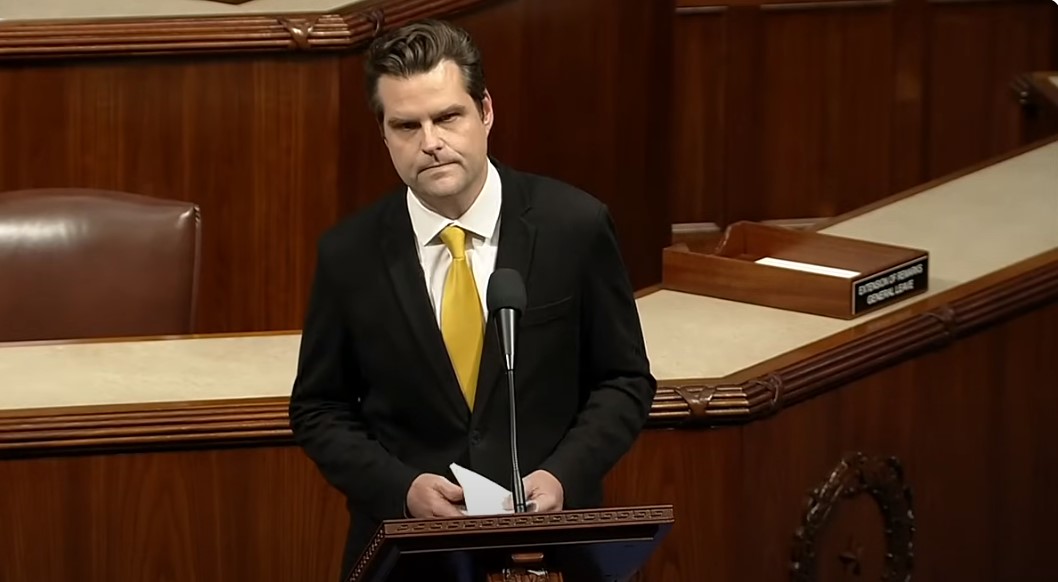Since the removal of Kevin McCarthy ten days ago, the House of Representatives has been without a speaker. Disagreement within the Republican camp has led to a circus of inner-party jockeying as they try to determine his successor. They say the earliest window for a vote is Tuesday, Oct. 17th.
Rep. Steve Scalise of Louisiana emerged as the first real candidate but was forced to abandon his bid when, in the face of opposition from Rep. Jim Jordan, he failed to garner adequate support. Subsequently, Jim Jordan beat out Rep. Austin Scott 124-81 in an internal vote and on Friday night was filed as the official Republican nominee for House speaker.
Speaking on the state of the proceedings, former vice-president Mike Pence said “Chaos is never America’s strength, and it’s never a friend of American families that are struggling.” Austin Scott made similar laments; referencing the intra-party fighting and politically paralyzing division he said “It makes us look like a bunch of idiots.”
The Republican Party’s inability to coalesce around a common cause isn’t a momentary struggle, however. Back in January, when Kevin McCarthy was elected as speaker, Democrats watched gleefully as Republicans went through fifteen ballots in four days before finally arriving at a successful vote. The last time that a speaker was not selected on the first vote was 1923.
McCarthy, along with the rest of the party, was metaphorically held hostage by Rep. Matt Gaetz and other Freedom Caucus members who threatened to withhold their vote until certain concessions were met. Ultimately, McCarthy made a deal and the Caucus gained three seats on the Rules Committee as well as the revival of an old rule that gave any single House member the right to introduce a vote to remove the speaker.

On September 29, McCarthy’s bill to fund the federal government, which contained funds for stricter border security and generic spending cuts, failed to pass after Democrats and 21 far-right Republicans refused to support it; if the House didn’t pass a funding bill before September 1st it would require government shutdown.
On September 30, McCarthy brought forward a temporary funding bill that did not include large budget cuts or aid to Ukraine; this bill passed the House with 126 Republicans and 209 Democrats in favor. The bill then passed the Senate and was signed into law by President Biden, averting a shutdown. McCarthy defended his work with Democrats, saying “If somebody wants to remove me because I want to be the adult in the room, go ahead and try”.

On October 3, Matt Gaetz introduced a motion to vacate the office of speaker citing frustration at the collaboration with Democrats. The vote passed with 216 in favor and 210 opposed, removing McCarthy as speaker. He named Patrick McHenry, a close ally, as speaker pro tempore. Jim Jordan is now nominated by the party for the position of speaker and the vote is tabled for Tuesday, October 17th.

New York Rep. and minority leader Hakeem Jeffries paints an idyllic picture of a potential path forward:
“On the one hand, House Republicans continue to triple down on the chaos, the dysfunction and the extremism that has been visited upon the American people as a result of the House Republicans civil war. On the other hand, traditional Republicans can break away from the extremism, partner with Democrats on an enlightened bipartisan path forward so we can end the recklessness and get back to doing the business of the American people.”

Jeffries’ reference to a “Republican civil war” is one that resonates; anyone who has watched the behavior and attitude of the GOP over the last four years is able to recognize that their problems go well beyond Kevin McCarthy and the elusive speakership they’re currently stumbling towards.
Following his victory in 2016, the Republican party capitulated completely to Trump. Over the course of the subsequent four years, conservative politicians catered to his whims and tantrums, ignorant of the fact that they were losing their party in the process. The GOP is fracturing thanks to the MAGA cult they themselves created. Republicans will usher in the New Year grappling with the very real prospect that their voters will nominate a candidate who has a significant chance of going to jail.
The statement made by McCarthy following his removal is an accurate summation: “I think a lot of things have happened so far that make a real damage for us moving forward.”












